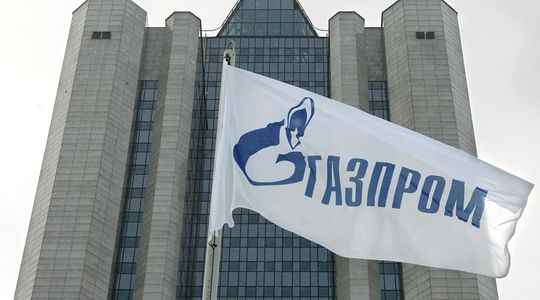Europe is tipping into the unknown. The Russian giant Gazprom begins maintenance work on the two Nord Stream 1 gas pipelines in the morning, which carry a large quantity of its gas delivered to Germany as well as to several other countries in western Europe. The shutdown of the two pipes, announced long ago, should last ten days. The threat of a permanent interruption of Russian exports to the rest of the continent, including France, is also very lively. The government called on Sunday to “quickly get into battle order” to deal with the possibility of a total cut in Russian gas supplies, “the most likely option” according to Economy Minister Bruno Le Maire.
- Germany shaken by the shutdown of Nord Stream 1
“We are facing an unprecedented situation, anything is possible,” acknowledged German Vice-Chancellor Robert Habeck over the weekend on public radio. The country led by Olaf Scholz is proving to be one of the countries most dependent on Russian gas resources. Moscow knows this and plays on this issue to put pressure on its neighbors. Citing a technical problem, the Russian authorities have already reduced gas deliveries by Nord Stream by 60% in recent weeks, a decision denounced by Berlin. The German ruling class considers it “political”.
If Germany can still enjoy Russian gas, other states are now completely deprived of it. This is the case of Poland and Bulgaria. “It is possible that the gas will flow again, even in greater quantities than before. It is possible that nothing more will come and we must prepare as always for the worst”, continued the vice-chancellor, Robert Habeck. Germany, despite the reopening of coal-fired power stations and its policy of rapprochement with other energy powers since the start of the war, still remains extremely dependent on Russia. Some 35% of its gas imports come from the country led by Vladimir Putin, compared to 55% before the war. Germany would not be alone in suffering from this judgment. Belgium, Denmark, France, Great Britain or even the Netherlands could see prices soar.
- Search for survivors continues in Chassiv Iar
Helped by a mechanical excavator, Ukrainian rescuers continued on Monday to search for survivors in the rubble of an apartment building reduced to dust by a Russian strike that killed at least 15 people in eastern Ukraine. . For several weeks, Russian forces have been trying to advance in this region and reinforce their presence. The strikes multiply.
In the city of Chassiv Iar, in the Donetsk area, the strike was particularly deadly. On Facebook, the local rescue services said: “During the rescue operations, 15 bodies were discovered on the spot and five people were able to be extracted from the rubble.”
According to the governor of Donetsk, Pavlo Kyrylenko who spoke on Telegram, 30 people are under the rubble. The emergency services managed to establish telephone contact with three of them. Also according to Pavlo Kyrylenko, at least 591 civilians have been killed and 1,548 injured so far in the Donetsk region since the start of the Russian invasion on February 24.
- Rain of bombardments in the East
After announcing the takeover of Luhansk, Russian forces are now targeting Donetsk. This is enough to control the entire Donbass mining basin and connect the two regions for future industrial and commercial exploitation. As part of this operation, “enemy units are preparing to intensify combat operations in the direction of Kramatorsk and Bakhmut”, revealed the Ukrainian staff in its update on Monday morning.
The Ukrainian army, however, wanted to be reassuring through the voice of the southern operational command: “The enemy in our operational zone remains behind the lines of defence, does not advance by land, does not have the possibilities and the capabilities to create new strike groups”. If the ground attacks have dried up for a few days, the bombardments are fed. In Kharkiv, the country’s second city, Governor Oleg Synegoubov reported on Telegram new missile fire which hit an “educational establishment” and a house.
The Ukrainians are responding to these attacks since his forces have hit a Russian base in Kherson in recent hours, according to his staff. For its part, the Russian Ministry of Defense continues to point to the actions of its enemy, accusing it of deploying men and installing weapons in schools.
- Tensions around cereals
Several Ukrainian officials have accused the Russian forces of looting harvested wheat to resell them as well as destroying them, when they are not stolen, with the bombardments. The authorities installed by Russia in Kharkiv have also indicated to the Russian agency Ria Novosti that “the harvest campaign has begun” in the occupied territories.
On Sunday, US Secretary of State Antony Blinken said Russia’s restrictions on Ukrainian grain exports may have contributed to unrest in Sri Lanka. “We see the impact of this Russian aggression manifesting itself everywhere,” commented the Secretary of State on the move to Thailand. He also called on Russia to let some 20 million tonnes of grain out of Ukraine.
